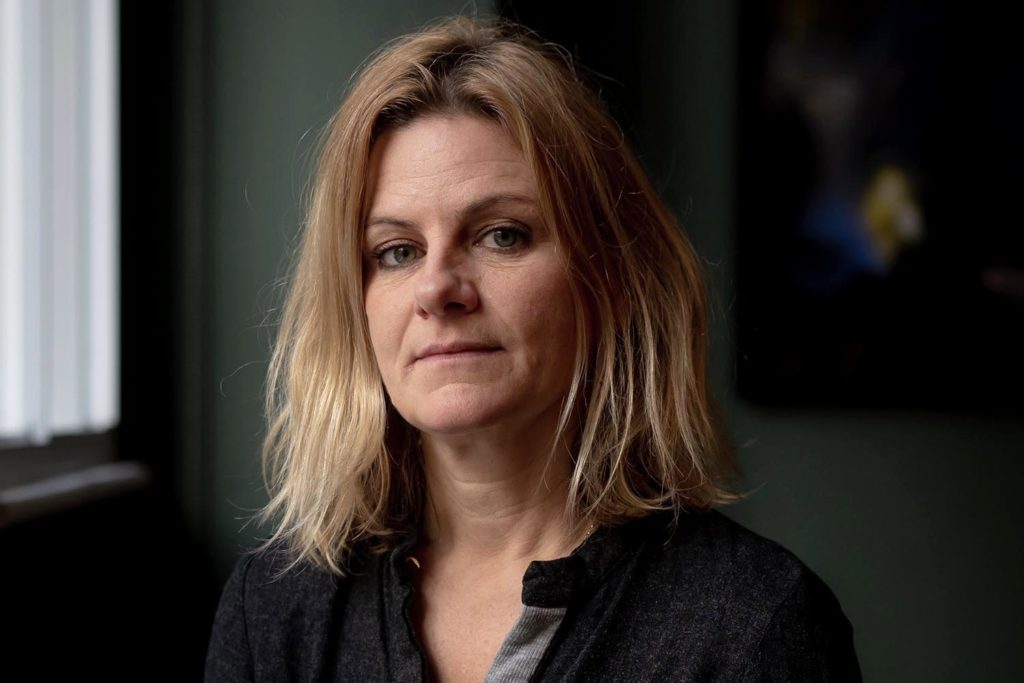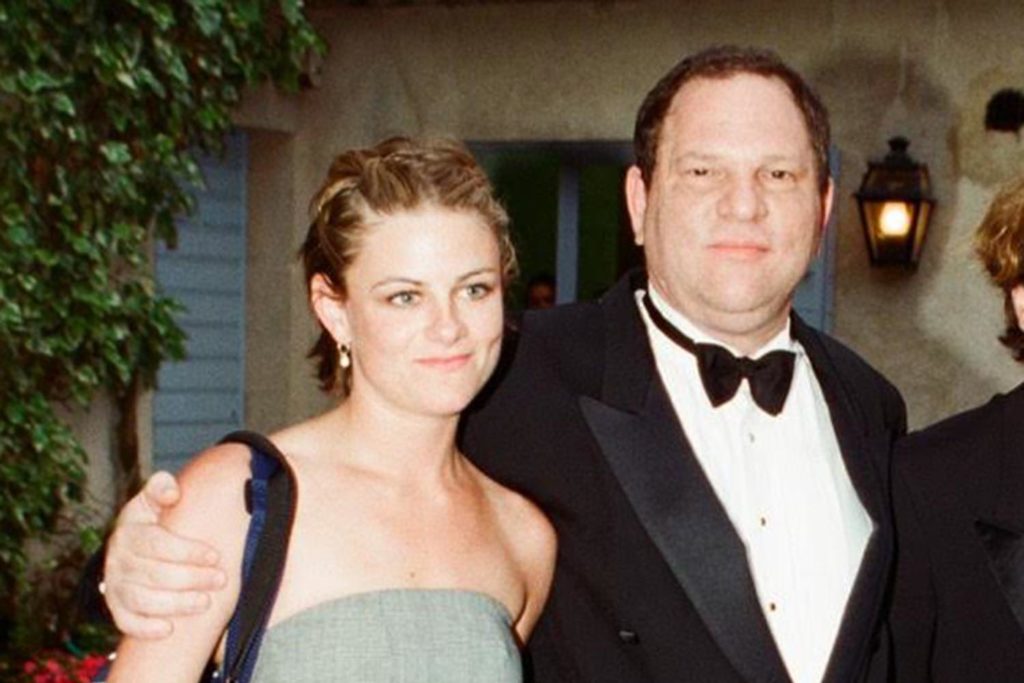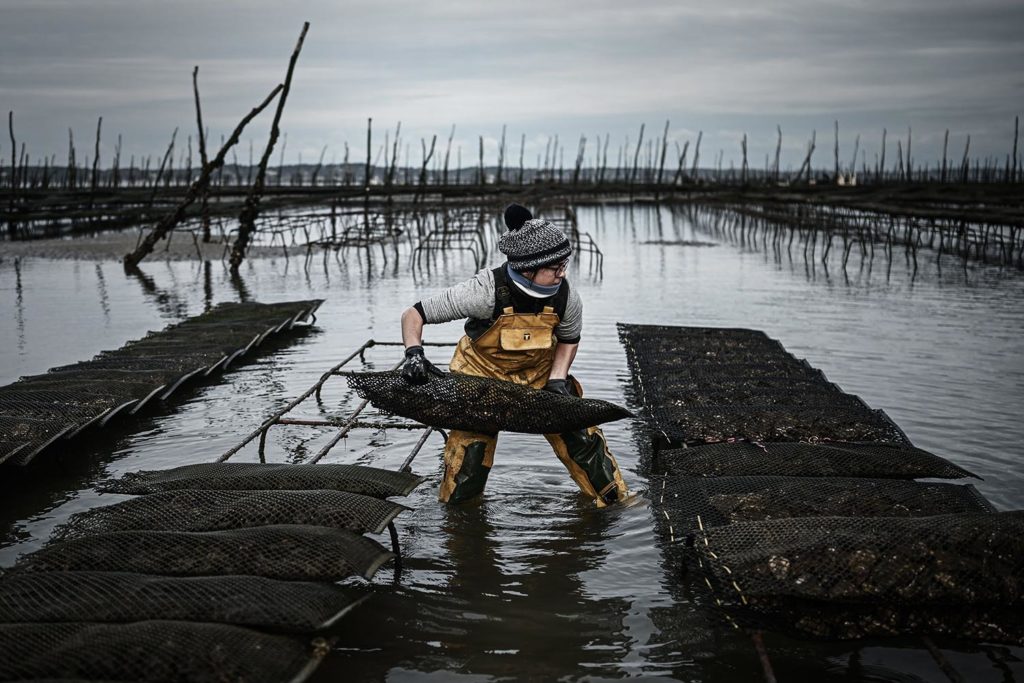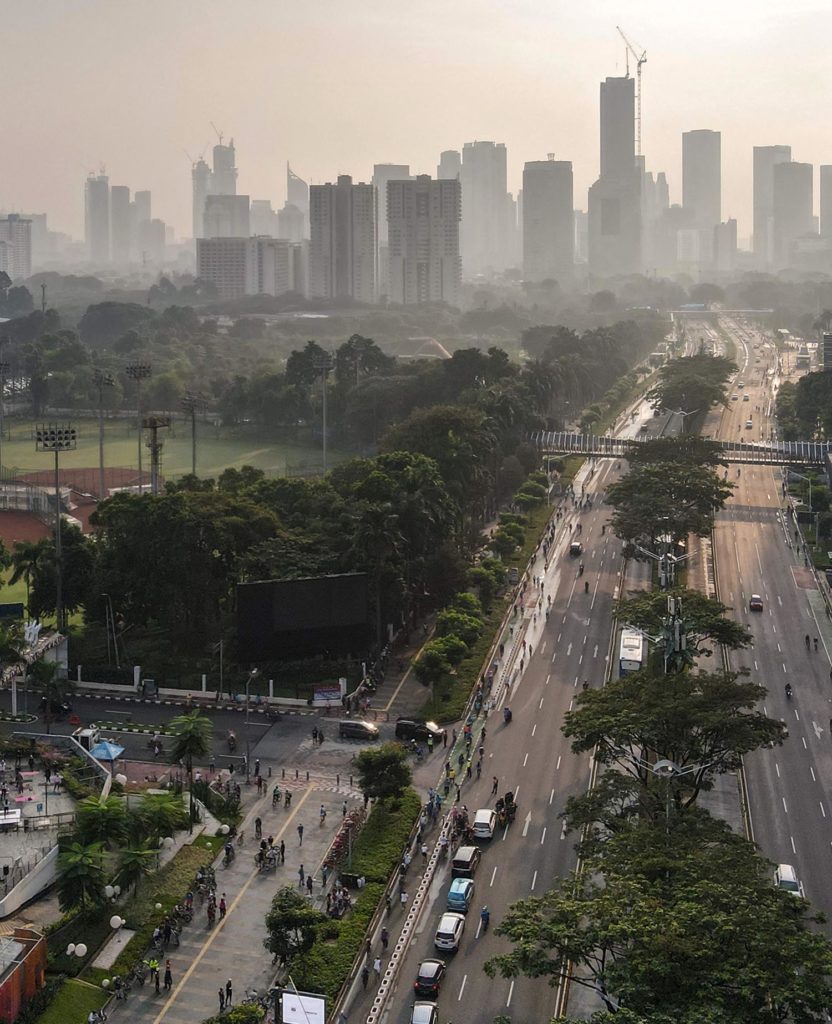What just happened

- The US and UK agreed to give Australia the technology to build nuclear submarines, a deal China described as “extremely irresponsible”.
- France suspended 3,000 health workers because they were not vaccinated against Covid under a new rule that made jabs mandatory for the country’s health, care, and fire service workers.
- Kemi Badenoch, the UK’s equality minister, called trans women men and appeared to mock gay marriage in a 2018 audio recording obtained by Vice World News.
- Researchers found bone tools and bones from skinned animals in a cave in Morocco that suggest humans began using clothing as far back as 120,000 years ago.
Number of the day: 62 – countries on UK’s Covid red list, roughly half of which are expected to be removed from the list in time for schools’ half-term break next month.
Millions of workers are bound by gagging contracts whether they know it or not. That could change, at last. Zelda Perkins, the first woman to break her non-disclosure agreement (NDA) with Harvey Weinstein, the former film producer who is serving a prison sentence for rape and sexual assault, exposed how he had used the devices to silence his victims. This week, she partnered with a senior Conservative MP, Maria Miller, to propose a law to stop employers abusing non-disclosure agreements.
The potential of Miller’s private members’ bill is far greater than ending the cover-up of sexual harassment and gender discrimination that the #MeToo movement highlighted. As Perkins tells Sensemaker:
“This was never just about Harvey Weinstein. It’s about how the law protects wrongdoing. This is about everything from faulty breast implants to flammable cladding. I had hundreds of people, men and women, come to me whose NDAs had devastating effects on their lives.”
NDAs are “widespread and totally destructive”, says Steven Kohn, a lawyer who represents a whistleblower who broke his NDA to expose the largest money laundering case ever. “Are so many people scared to expose wrongdoing or are they being threatened?”

The conditions of Perkins’ NDA meant she could not even speak to a lawyer or doctor, despite them being bound by professional secrecy, about an incident in which he tried to rape her colleague. Another condition demanded she give 48 hours’ notice to Weinstein’s lawyers if “any criminal legal process” transpired against Weinstein in relation to the incident – and that she “use all reasonable endeavours to limit the scope of the disclosure as far as possible”.
Since Perkins publicly broke her NDA in 2017, the UK government conducted a number of consultations on their use and abuse. It found that action was needed against toxic agreements.
But ministers haven’t enacted new laws or updated sanctions on lawyers who write unethical NDAs. “It’s because of the vested interests of people in power,” Perkins says. “We know there are people in the cabinet now who have their own NDAs.”
The private members’ bill, which has cross-party support, received its first reading on Tuesday. Its second reading is not scheduled until 22 March next year.
Tortoise’s reporting on NDAs uncovered how hundreds of millions of pounds of public money is spent potentially hiding inefficiency and wrongdoing. We revealed that 12 of the top 50 employment law firms were willing to write NDAs that included the most aggressive clauses used in the Weinstein case, one of which was designed to frustrate a criminal investigation, and we traced how a contract intended to protect trade secrets became so widely abused.
EU schemers
Good news: the backlog of applications by European Union citizens and their families for post-Brexit settlement in the UK might be cleared in time for Christmas. The Home Office received over 6.1 million applications for the scheme, which gives EU citizens and their families the right to live and work in the UK as before Brexit. Excluding repeat applications, the number dropped to 5.5 million. The latest figures show the backlog is now down to 450,000, which the government should be able to clear by the year’s end. “Our message remains clear,” immigration minister Kevin Foster told the Guardian. “The Home Office is looking for reasons to grant status rather than refuse.” Which raises the question of whether such a labour-intensive process was needed in the first place.

Blue food
Three seemingly separate trends – environmental degradation, obesity, and undernourishment – are all rising. They are driven by resource-intensive food production and inadequate diets. The counter-trend we need is a food system that delivers nutrition while minimising further environmental damage. A group of scientists think they have the answer: blue foods. Algae, seaweed, and other aquatic animals rich in micronutrients, have been largely overlooked, but could help about 166 million people get enough nutrients over the next decade. The scientists developed a new database that covers nutrients in 3,753 species of aquatic foods to come to their conclusion. Their work was published as a series of papers in Nature. To be clear, it doesn’t advocate more wild-caught fishing. It does suggest more farmed clams and oysters should be on the menu.
Shortening lives
Life expectancy in England fell to its lowest level since 2011, according to a Public Health England report. It fell by 1.3 years for men to 78.7, and 0.9 years for women to 82.7. The main contributor was excess deaths due to the Covid pandemic. Half the people with a worsening health condition between May 2020 and January 2021 didn’t seek treatment, so as not to add pressure on the NHS or out of fear of catching Covid. There was also an “unprecedented” rise in deaths caused by alcohol use – up 20 per cent compared with 2019. The effects were unequal: the gap between life expectancy in the most and least deprived areas widened over the course of the pandemic.

Jakarta pollution win
Indonesia’s capital, Jakarta, has repeatedly been found to have some of the worst air quality in the world, regularly knocking notoriously polluted cities like Shanghai and Karachi off the top spot. Greenpeace Indonesia estimates that at least 7,000 Jakartans die prematurely every year because of high pollution levels, and almost a third of the city’s 44 sub-districts cite “upper respiratory infections” as the leading cause of sickness. Yesterday 32 citizens won a civil lawsuit accusing president Joko Widodo and other top officials including his environment minister of unlawfully neglecting to “take measures to control air pollution in Jakarta”. It’s not the first time citizens have successfully taken a government to court on air pollution – a similar ruling was successful two years ago in Paris – but it’s a sign that litigation is gaining impact in the armoury of climate action groups. Not that Widodo is caving. His government has said it will appeal.
Gulf cash
Mubadala, the United Arab Emirates sovereign wealth fund, said it will invest $10 billion in the United Kingdom over the next five years. The investment areas: clean energy, technology, and infrastructure. The oil-rich Gulf state wants to diversify its own economy away from fossil fuels. The UK wants the money to drive regional development and help its levelling-up agenda. “You have to see this in the context of the UK wanting to forge these strong bilateral relationships,” the UK’s investment minister, Lord Grimstone, tells the FT(£). “Perhaps we haven’t always given as much attention as we should do, in the past, to these strong historic relationships”. The UAE was a British protectorate. It’s the 14th largest investor in the UK. Four out of the top five investors are European Union member states.
Thanks for reading, and do share this around.
Paul Caruana Galizia
@pcaruanagalizia
With additional reporting by Phoebe Davis.
Produced by Phoebe Davis and edited by Xavier Greenwood.
Photographs Andrew Testa for Tortoise, Alan Davidson/Shutterstock, Getty Images











